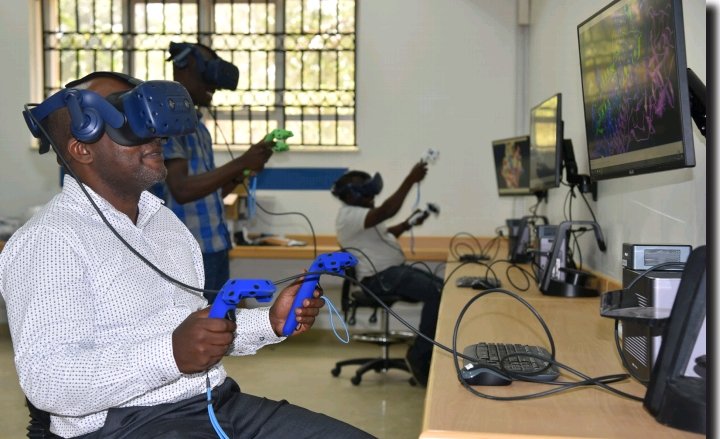The conference centered on four areas:
Accelerating innovations into practice No people left behind-‘Lo-tech and the last mile’ People, processes, and products Arts for health and social change.
There was also a two-day hackathon, hosted by Andela Uganda. The team that won was Oocho Tech and they developed a glove they called BCT-Glove that provides a real-time and self-testing solution that helps to detect cancer in a private and no risk way. To crown the activities that took place at the Health Innovation Conference, was the launch of a hi-tech Bioinformatics lab at Makerere University. This fully furnished lab is called the African Centre of Excellence. It is hosted at the Infectious Diseases Institute of Makerere University. The facility was sponsored by Uganda Infectious Disease Institute (IDI), Colleges of Health Science (CHS) and Computing (CoCIS) in partnership with the US Government’s National Institute of Allergy and Infectious Diseases and the Office of Cyberinfrastructure and Computational Biology. The launch was presided over by the United States Deputy Chief of Mission in Kampala, Ms. Colette Marcellin. Also present at the launch was the Deputy Vice-Chancellor (Academic Affairs)-Dr. Umar Kakumba, Members of the IDI Board led by Chairperson-Rev. Prof. Samuel Luboga, Executive Director IDI-Dr. Andrew Kambugu, Mr. Michael Tartakovsky, the Chief Information Officer NIH/NIAID, among others. Related Article: This is Mirembe bot, Uganda’s first artificially intelligent health advisor
Features of the Bioinformatics lab
The center will have hi-tech facilities to support its data intensive work. These facilities, include:
A high performance computing cluster (cluster of 16 nodes, 32 cores/node, Minimum 16GB/core (512GB/node), 1 high memory Node (1TB+), GPU processors, ConnectX-5 HCAs, 2x NVMe 512 SSD per node, 100GB Ethernet ToR, 1Tb solid state drive attached to each node) A telelearning center A virtual reality training room A collaborative room with collaborative spaces and amenities
Education and Training
The ACE has been designed to support the Colleges of Health Sciences and Computing in the delivery of Masters, PhD and post doctoral level training in bioinformatics. That degree level training will focus on the following core competency levels:
Molecular Biology Biological Data Generation Technologies (DNA sequencing, microarrays, PCR, ChIP-seq and medical imaging) Bioinformatics programming Sequence analysis Functional genomics and transcriptomics Population genomics Genoinformatics and Biostatistics Professional, ethical, legal and social issues Communication and team work
Other services to be provided by the center include; human and pathogen DNA sequencing for private individuals and researchers, short-term training in bioinformatics, biostatistics and image processing as well as VR infrastructure and services. It is great to see hi-tech innovation coming to the health sector. This center will go a long way in improving health standards in Uganda and Africa at large.

